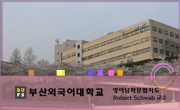In foreign language education process, it is said that mastering collocation is related to the problem of whether someone is able to use the language like a native speaker or not. In this article, I, basing on Japanese education, focusing on collocati...
http://chineseinput.net/에서 pinyin(병음)방식으로 중국어를 변환할 수 있습니다.
변환된 중국어를 복사하여 사용하시면 됩니다.
- 中文 을 입력하시려면 zhongwen을 입력하시고 space를누르시면됩니다.
- 北京 을 입력하시려면 beijing을 입력하시고 space를 누르시면 됩니다.

日本語教育における表現の選択肢問題に関する一思案 ーコロケーションを中心にー = Opinions on select limbs of expressions in Japanese education―focusing on misuses of collocation suspected―
한글로보기https://www.riss.kr/link?id=A104366765
-
저자
이동철 (延辺大学 日本学研究所)
- 발행기관
- 학술지명
- 권호사항
-
발행연도
2014
-
작성언어
Japanese
-
주제어
Japanese education ; corpus ; collocation ; generality of expression ; the choices ; 日本語教育 ; コーパス ; コロケーション ; 「表現の一般性」 ; 選択肢
-
등재정보
KCI등재
-
자료형태
학술저널
-
수록면
359-382(24쪽)
-
KCI 피인용횟수
2
- 제공처
-
0
상세조회 -
0
다운로드
부가정보
다국어 초록 (Multilingual Abstract)
(1) In Japanese education, introduction of collocation is quite important. While, it would not have been possible without the development of Corpus in recent years.
(2) In matters of definition and scope of collocation, there are two different opinions. One is that there should be two or more content free morphemes and it is a combination of two or more content free morphemes with grammatical morphemes; the other one is that it is two or more combinative words which is “of a combination relation that repeatedly appears in one language both syntactically and semantically”. But this opinion needs a deeper consideration in the future.
(3) An expression, especially judging the correct uses and misuses of collocation is quite difficult. Though we can judge from Corpus to some extent, it’s not omnipotent. So, we might firstly divide “suspected but uncertain misuses of collocation” into “violation of collocation that is combinative with actual world” and misuse of grammatical errors in one language that is grammatically true but not appearing in Corpus.
(4) In actual world, there are a great diversity of expressions for an object, and it’s up to the speaker or author to choose any of them. But non-native speakers do not have such ability to perceive, and that’s why “generality of expression” is needed in language education. While, to what stage can be seen as “generality of expression”, is a problem to be solved.
In foreign language education process, it is said that mastering collocation is related to the problem of whether someone is able to use the language like a native speaker or not. In this article, I, basing on Japanese education, focusing on collocation, organized and described my opinions about suspected but uncertain misuses of collocation from non-native Japanese speakers and generality of expression in Japanese education using Corpus. And the conclusions are as follows.
(1) In Japanese education, introduction of collocation is quite important. While, it would not have been possible without the development of Corpus in recent years.
(2) In matters of definition and scope of collocation, there are two different opinions. One is that there should be two or more content free morphemes and it is a combination of two or more content free morphemes with grammatical morphemes; the other one is that it is two or more combinative words which is “of a combination relation that repeatedly appears in one language both syntactically and semantically”. But this opinion needs a deeper consideration in the future.
(3) An expression, especially judging the correct uses and misuses of collocation is quite difficult. Though we can judge from Corpus to some extent, it’s not omnipotent. So, we might firstly divide “suspected but uncertain misuses of collocation” into “violation of collocation that is combinative with actual world” and misuse of grammatical errors in one language that is grammatically true but not appearing in Corpus.
(4) In actual world, there are a great diversity of expressions for an object, and it’s up to the speaker or author to choose any of them. But non-native speakers do not have such ability to perceive, and that’s why “generality of expression” is needed in language education. While, to what stage can be seen as “generality of expression”, is a problem to be solved.
국문 초록 (Abstract)
(1) 일본어교육에서collocation 의 도입은 아주 중요한데 이는 최근에 들어서 개발된 코퍼스가 없다면 불가능하다.
(2) collocation 의 정의와 범위에 대해서는 두 개 이상의 독립어와 독립어의 결합이라는 견해와 두 개 이상의 결합하기 쉬운 단어로서 “통사적으로도 의미론적으로도 어떤 언어에서 반복적으로 나타나는 결합 관계”라는 두 가지 견해가 있는데 이에 대해서는 앞으로 좀 더 깊은 검토가 필요하다.
(3) 하나의 언어 표현, 특히 collocation에 대한 바른 사용과 오용의 판단은 아주 어렵지만 코퍼스를 통해 어느 정도로 그 여부를 판단할 수 있으나 코퍼스는 만능이 아니기 때문에 우선 “현실세계와의 조합이 가능한collocation위반”과 어떤 언어 내부의 문법적 오류를 오용, 문법적으로는 틀리지 않지만 코퍼스에 나타나지 않는collocation을 “의사 오용”으로 나누어 생각할 수 있다.
(4) 현실 세계에서 어떤 사물에 대한 언어 표현은 매우 다양하다. 어떤 표현을 선택하는가 하는 것은 화자 또는 논자의 자유이지만 비 모어 화자는 이에 대한 판단 능력이 없기 때문에 언어교육에 있어서는 “표현의 일반성”이 필요하다. 단 어느 단계까지 “표현의 일반성”으로 볼 것인가 하는 것은 앞으로의 과제이다.
외국어교육 과정에서collocation을 구사할 수 있는가 없는가 하는 것은 해당 외국어를 모어 화자처럼 구사할 수 있는가 없는가에 달려있다고 생각한다. 본 고에서는 일본어교육에 입각하여 현...
외국어교육 과정에서collocation을 구사할 수 있는가 없는가 하는 것은 해당 외국어를 모어 화자처럼 구사할 수 있는가 없는가에 달려있다고 생각한다. 본 고에서는 일본어교육에 입각하여 현대일본어의 collocation을 중심으로 일본어 비 모어화자의collocation의 의사(擬似) 오용과 일본어교육에 있어서의 표현의 일반성 등의 문제를 둘러싸고 코퍼스를 이용하여 정리한 결과 다음과 같은 결론에 이르렀다.
(1) 일본어교육에서collocation 의 도입은 아주 중요한데 이는 최근에 들어서 개발된 코퍼스가 없다면 불가능하다.
(2) collocation 의 정의와 범위에 대해서는 두 개 이상의 독립어와 독립어의 결합이라는 견해와 두 개 이상의 결합하기 쉬운 단어로서 “통사적으로도 의미론적으로도 어떤 언어에서 반복적으로 나타나는 결합 관계”라는 두 가지 견해가 있는데 이에 대해서는 앞으로 좀 더 깊은 검토가 필요하다.
(3) 하나의 언어 표현, 특히 collocation에 대한 바른 사용과 오용의 판단은 아주 어렵지만 코퍼스를 통해 어느 정도로 그 여부를 판단할 수 있으나 코퍼스는 만능이 아니기 때문에 우선 “현실세계와의 조합이 가능한collocation위반”과 어떤 언어 내부의 문법적 오류를 오용, 문법적으로는 틀리지 않지만 코퍼스에 나타나지 않는collocation을 “의사 오용”으로 나누어 생각할 수 있다.
(4) 현실 세계에서 어떤 사물에 대한 언어 표현은 매우 다양하다. 어떤 표현을 선택하는가 하는 것은 화자 또는 논자의 자유이지만 비 모어 화자는 이에 대한 판단 능력이 없기 때문에 언어교육에 있어서는 “표현의 일반성”이 필요하다. 단 어느 단계까지 “표현의 일반성”으로 볼 것인가 하는 것은 앞으로의 과제이다.
참고문헌 (Reference)
1 大野晋, "類語国語辞典" 角川書店 2007
2 藤村逸子, "言語研究の技法" ひつじ書房 2011
3 설근수, "移動動詞の語彙論研究 -「に格名詞+動詞」を中心に-" 일본연구소 32 : 325-351, 2011
4 山梨正明, "現代言語学潮流" 勁草書房 2006
5 呂叔湘, "現代漢語八百詞" 商務印書館 1984
6 市川保子, "日本語誤用例文小辞典" 凡人社 2000
7 国立国語研究所, "日本語科学 22" 2007
8 日本語教育学会, "日本語教育事典" 大修館書店 1982
9 杉本つとむ, "日本語学辞典" 桜楓社 1990
10 姫野昌子, "日本語コロケーション辞典" 研究社 2012
1 大野晋, "類語国語辞典" 角川書店 2007
2 藤村逸子, "言語研究の技法" ひつじ書房 2011
3 설근수, "移動動詞の語彙論研究 -「に格名詞+動詞」を中心に-" 일본연구소 32 : 325-351, 2011
4 山梨正明, "現代言語学潮流" 勁草書房 2006
5 呂叔湘, "現代漢語八百詞" 商務印書館 1984
6 市川保子, "日本語誤用例文小辞典" 凡人社 2000
7 国立国語研究所, "日本語科学 22" 2007
8 日本語教育学会, "日本語教育事典" 大修館書店 1982
9 杉本つとむ, "日本語学辞典" 桜楓社 1990
10 姫野昌子, "日本語コロケーション辞典" 研究社 2012
11 小池生夫, "応用言語学事典" 研究社 2003
12 李在鎬, "コーパス調査入門" くろしお出版 2012
13 大曾美恵子, "コーパスによる日本語教育の研究" 22 (22): 2003
14 田野村忠温, "コーパスからのコロケーション情報抽出―分析手法の検討とコロケーション辞典項目の試作―" 21 : 2009
15 小内一, "てにをは辞典" 三省堂 2011
16 斉藤倫明, "これからの言語学" ひつじ書房 2011
17 小屋多恵子, "これからのコロケーション研究" ひつじ書房 2011
18 堀正弘, "これからのコロケーション研究" ひつじ書房 2012
19 深田淳, "『茶漉』で見る日常会話" 2007
20 家田章子, "『コノ~ノニ』と形容詞のコロケーション―コーパスによる共起表現の考察―" 4 : 2003
21 이동철, "「多くある」文に関する一考察 -日本語教育の観点から見た「正用」と「誤用」の 認識をめぐって-" 한국일어일문학회 86 (86): 139-162, 2013
22 荻野綱男, "ITと日本語研究" 明治書院 2011
동일학술지(권/호) 다른 논문
-
対馬藩における秀吉像の変遷 -『両国壬辰実記』成立の背景 -
- 단국대학교 일본연구소
- 箕輪吉次
- 2014
- KCI등재
-
- 단국대학교 일본연구소
- 임찬수
- 2014
- KCI등재
-
- 단국대학교 일본연구소
- 田阪正則
- 2014
- KCI등재
-
재일문예지 『민도(民涛)』의 기획과 재일문화의 향방 - 서지적 고찰을 중심으로 -
- 단국대학교 일본연구소
- 신승모
- 2014
- KCI등재
분석정보
인용정보 인용지수 설명보기
학술지 이력
| 연월일 | 이력구분 | 이력상세 | 등재구분 |
|---|---|---|---|
| 2026 | 평가예정 | 재인증평가 신청대상 (재인증) | |
| 2021-09-10 | 학회명변경 | 영문명 : The Center for Japanese Studies -> Institute of Japanese Studies |  |
| 2020-01-01 | 평가 | 등재학술지 유지 (재인증) |  |
| 2017-01-01 | 평가 | 등재학술지 유지 (계속평가) |  |
| 2015-10-14 | 학술지명변경 | 외국어명 : 미등록 -> The Journal of Japanese Studies |  |
| 2013-01-01 | 평가 | 등재학술지 유지 (등재유지) |  |
| 2010-01-01 | 평가 | 등재학술지 유지 (등재유지) |  |
| 2007-01-01 | 평가 | 등재학술지 선정 (등재후보2차) |  |
| 2006-01-01 | 평가 | 등재후보 1차 PASS (등재후보1차) |  |
| 2004-01-01 | 평가 | 등재후보학술지 선정 (신규평가) |  |
학술지 인용정보
| 기준연도 | WOS-KCI 통합IF(2년) | KCIF(2년) | KCIF(3년) |
|---|---|---|---|
| 2016 | 0.62 | 0.62 | 0.47 |
| KCIF(4년) | KCIF(5년) | 중심성지수(3년) | 즉시성지수 |
| 0.41 | 0.38 | 0.966 | 0.23 |




 KCI
KCI





